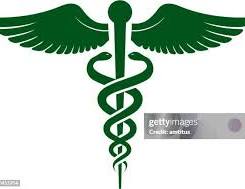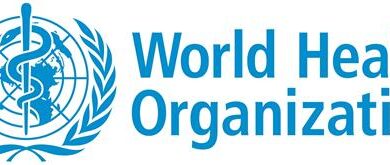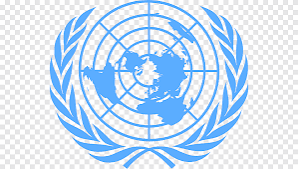How Adequate Nutrition, Good Health Can Help In Achieving Sustainable Global Development Goals

In this article, EDET UDOH highlighted experts’ views that adequate nutrition and good health are critical to the nation’s achievement of the Sustainable Global Development Goals.
Experts have identified Adequate nutrition and good health as critical to achieving the 17 Sustainable Global Development Goals (SDGs), emphasising the need for all to be in good health to be able to be actively involved in all the activities leading to the success of the goals.
The Sustainable Development Goals (SDGs), also known as the Global Goals, were adopted by the United Nations in 2015 as a universal call to action to end poverty, protect the planet, and ensure that by 2030 all people enjoy peace and prosperity.
The 17 SDGs are integrated—they recognize that action in one area will affect outcomes in others and that development must balance social, economic and environmental sustainability.
The Goals are Goal 1: End poverty in all its forms everywhere; Goal 2: End hunger, achieve food security and improved nutrition and promote sustainable agriculture; Goal 3: Ensure healthy lives and promote well-being for all at all ages; Goal 4: Quality Education; Goal 5: Gender Equality; Goal 6: Ensure availability and sustainable management of water and sanitation for all; Goal 7: Ensure access to affordable, reliable, sustainable and modern energy for all; Goal 8: Promote sustained, inclusive and sustainable economic growth, full and productive employment and decent work for all; Goal 9: Build resilient infrastructure, promote inclusive and sustainable industrialization and foster innovation.
Other SDGs are Goal 10: Reduce inequality within and among countries; Goal 11: Make cities and human settlements inclusive, safe, resilient and sustainable; Goal 12: Ensure sustainable consumption and production patterns; Goal 13: Take urgent action to combat climate change and its impacts; Goal 14: Conserve and sustainably use the oceans, seas and marine resources for sustainable development; Goal 15: Goal 16: Promote peaceful and inclusive societies for sustainable development, provide access to justice for all and build effective, accountable and inclusive institutions at all levels and Goal 17: Strengthen the means of implementation and revitalize the global partnership for sustainable development.
Countries have committed to prioritizing progress for those who are furthest behind. The SDGs are designed to end poverty, hunger, AIDS, and discrimination against women and girls.
The creativity, know-how, technology and financial resources from all societies are necessary to achieve the SDGs in every context.
Experts believe that adequate nutrition enhances healthy living and is very key to achieving the above stated SDGs.
Speaking during Nestle’s Live Strong with Iron launch in Abuja, Dr Binyerem Ukaire, Director and Head of Nutrition Department who represented the Minister for Health, Federal Ministry of Health, Dr Osagie Ehanire, in her presentation titled “National Perspective on Iron Deficiency” emphasized the need for consumption of iron-rich local foods for enhancement of healthy living, especially by the local dwellers.
While giving insights into the causes of iron deficiency, she also explained the consequences of the problems, and what the government is doing in terms of policy and programmes, interventions and recommendations.
According to her, “Adequate nutrition is very key to the growth of any country. When we say adequate nutrition, we mean what will make all Nigerians well-nourished because we believe that adequate nutrition is the bedrock for good health, for achieving all the sustainable global development goals.
“Adequate nutrition is the bedrock for physical growth and development, in the child and even later on for productivity and also for economic growth. When we talk about adequate nutrition, we are talking about the quantity, the quality of what is being consumed with respect to micronutrients – your fat, your carbohydrate etc.
“We are gathered here today because iron is very crucial. When you say haemoglobin you refer to iron. Iron is very vital for the synthesis of haemoglobin in the red blood cell and we all know that blood is life and survival,” Dr. Ukaire added.
Speaking at the stream one of the training programme jointly organised by Nestle Nigeria and the Lagos Business School Sustainability Centre, for journalists covering, Health/Nutrition, Agriculture, Environment and Business/Economy on the topic “Exploring the Burden of Nutrition in Africa: Micronutrient Fortification and Other Solutions 1,” Manager, Nestle Nutrition Institute, Central and West Africa, Dr Kanalio Olaloku, emphasised the need to fight against malnutrition in Nigeria and Africa as a whole.
She also stated what the government is doing in this regard and the need for private-government partnerships in providing various interventions.
According to her, “We have a wide array of interventions. For the long term intervention, increasing dietary specification should be the central component, especially when looking at prevention and control efforts. In this case, the government, regulatory bodies and stakeholders have a crucial role. We must recognise that this intervention will take time to show impact because it’s not a one day or one-month affair.
“If we are talking about achieving the global sustainable development goals (SDGs) as well as ending hunger by 2030, these interventions are something that needs very high consideration. Until the population diet is improved, and for the deficiency to be corrected, food fortification and supplication with capsules remain the primary sources for delivering the key micronutrients to our population.”
She noted, “The government has a big role to play by regulating the food manufacturers because sometimes you may find out that the nutrients they claimed are in the food products may or may not be present.”
She also identified the importance of Research and data, adding that “Research and data is another critical aspect. This is also making sure that we do appropriate Research with the key stakeholders to identify where the problems are and see what we can do as regards fortification.
“Again, we need a multi-sectoral approach to achieve the interventions. Government must be the number one; the private companies as well. We also have stakeholders in the educational sector to introduce how to inculcate nutrition into children’s education curriculum. So Ministry of Health, the Education Ministry, the Ministry of Agriculture, Nigerian Youth Service Corps as well as other stakeholders in the Nigerian health system should help us as a nation combat micronutrient deficiency,” Dr Kanalio pleaded.
Nestle Nigeria, the good food, good life Company, in its practical demonstration to ensure a good life for all now and in future aimed at achieving the 17 SDGs has continued to introduce various initiatives to ensure that all food produced by the company is fortified with iron.
The Corporate Communication and Public Affairs Manager, Nestle Nigeria, Mrs Victoria Uwadoka, who represented the Managing Director/Chief Executive Officer, Wassim El-Husseini spoke at the company’s Living Strong with Iron launch and emphasised the importance of eating good food and the place of good health in the growth of any nation.
She noted that we have many local sources of iron-rich foods. Many people are unaware of their nutritional values, adding that the Live Strong With Iron campaign aims to create awareness, educate the public and draw their attention to the inherent benefits of eating our local iron-rich food and iron-fortified foods.
According to her, “We have all these readily available but do the people know that they contain iron. Do they know how to combine it? Do they know how to eat it? Do they know whether their body is absorbing it or not? We need stakeholders’ action to frame this problem, call for a solution, and help our people make the right nutrition choices. So by this time next year, if we were to conduct a survey, the metric should be so much better, which is what we are looking forward to, as we work towards achieving the global SDGs.’’





